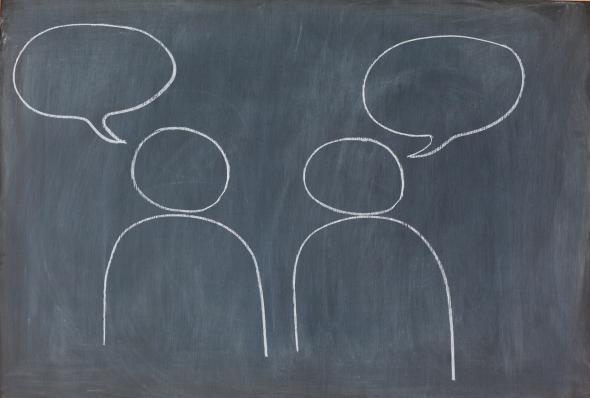Throughout October, Futurography focused on the future of ownership, with articles exploring how technological and cultural developments are transforming our understanding of property. We looked at the ways self-driving cars might change cities, the real implications of “Buy Now” buttons, and the status of the right to hack. But we’re also interested in what you have to say, so we’ve written up the results of our survey on the topic. We hope you’ll continue to follow along this month as we examine who controls the internet.
One reader argued that those hoping to understand the future of ownership should look to the past, writing, “Take a good hard look at the late 1800s, early 1900s for the way the vast population will live.” For this reader, such comparisons suggest “we will be moving back to shared accommodations/transportation, and many other items that we now take ownership for granted.”
Others, even those who don’t think we’re headed backward, tended to agree with this general hypothesis. “I think sharing or renting of seldom used items will become much more common,” one proposed, suggesting by way of example that apartment buildings might keep a stock of serving utensils that residents “can borrow when they are having a big party.” Another suggested that such trends might transform norms, such that “Physical collections will seem déclassé, like hoarding.”
To be fair, though, not everyone who wrote in agreed that we’d see sweeping transformations. One reader proposed that ownership conventions will change only “for the young [since] raising kids complicates things.” Others who took a similarly moderate view tended to zero in on the question of media, suggesting that ebooks and MP3s don’t augur the end of ownership: “People may digitally download things but the human desire to be in control and own will stay strong,” one typical respondent observed.
Some felt it might be a positive thing if our appetite for physical goods did decrease. “Sharing, renting and communal ownership will become the norm, and people and the planet will be better off,” one wrote, presumably thinking that with fewer items in our lives we’d be likely to create less waste. Another focused in on the utility of shared ownership, enthusing, “I don’t want to own anything, I just want to use stuff.” And a few took this conclusion in philosophical directions, as did one who proposed, “A world without ownership is a more equal world.”
For many more readers, though, changing patterns of ownership present serious concerns. One respondent fears that young people “will find themselves unable to amass any savings” as they struggle to “balance their paycheck[s] … against a barrage of recurring monthly bills.” Another made this risk more explicit, writing, “As programs like Photoshop and Excel move toward monthly fees instead of purchases users will actually pay more over time. It becomes $600 every year instead of every two or three.” Taking a strong version of this position, one reader wrote described ownership as “safeguard against poverty,” concluding, “The ability to care for and maintain your property is an equalizer in income and wealth gaps.”
Some expressed concerns that are less economic than sociocultural. “At the cultural preservation level, libraries and archives will have continuing challenges preserving and sharing DRM-locked material,” one reader pointed out. Taking a similar tack, another wrote, “The literal ‘Mickey Mouse’ rule of 140 years of publishing rights has already suffocated dissemination of knowledge.”
Zeroing in on a more speculative issue, readers were split on the question of whether they’d be willing to give up their personal cars if convenient, self-driving options were available. “As a suburban parent, I’d be wary of giving up my only transportation option in the event of an emergency,” one answered, while another responded, “I enjoy driving, and own a couple of classic cars.” No objection resonated more fully, though, than the objection of one who wrote “not even jetpacks will be more convenient than my own car.”
Many others suggested they would happily abandon their vehicles (especially those who don’t own cars now), but some of those who gave a thumbs up to the prospect still had reservations. One wrote that it would be acceptable “depending on convenience, the price of alternatives, safety/reliability, etc.” Another allowed that self-driving cars will have “one-size-fits-all” applications, but mysteriously added, “I use my vehicle for more specialized purposes on occasion.”
Readers also shared their thoughts on one of the most striking enigmas that came up throughout our ownership course—the question of why people are often willing to pay more for digital goods than physical ones. At least one doubted the very premise, writing, “I’m not really sure that they are” and another threw up his or her hands, telling us, “It is a total mystery to me why people are willing to pay more.” Many others, however, concluded that we were simply paying for convenience. As one typical respondent observed, “It’s short-term buying. Why do we pay for Starbucks coffee when for a fraction of the price we can make coffee at home?”
Finally, almost everyone agreed on what the last thing to go would be if and as ownership fades: Our clothes—and for several respondents, our underwear in particular. That said, one reader had an especially astute take: We probably won’t be giving up our toothbrushes anytime soon.
I, for one, hope that you’re right, anonymous Slate reader.
